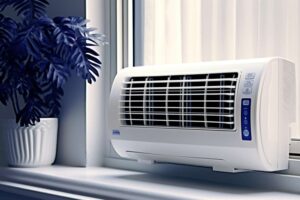
Tips and Remedies for Stopping Snoring
Snoring disrupts sleep and relationships. Thankfully, various effective remedies, devices, and tips can help stop snoring for better rest.
Related Topics (Sponsored Ads):

Understand Snoring Causes and Health Risks
Before attempting solutions, research the causes and health risks of snoring. Understanding the root causes is critical to finding the proper remedy. Snoring happens when airflow is partially obstructed through the mouth and nose. Common causes include:
- Nasal/sinus congestion from colds, allergies
- Being overweight, excess throat tissue
- Alcohol consumption before bed
- Sleeping position
- Enlarged tonsils, adenoids, uvula
- Sleep apnea
Additionally, snoring may indicate severe health conditions like:
- Heart disease and heart attack risk
- High blood pressure
- Irregular heartbeat
- Stroke
- Pulmonary hypertension
- Obstructive sleep apnea
- Daytime fatigue from poor sleep
Nasal and sinus congestion can lead to snoring. Colds, allergies, deviated septum, and other nasal/sinus issues cause stuffed airways and reduced airflow. Congestion may worsen in dry climates or seasons.
Being overweight contributes to snoring by increasing throat tissue volume. Excess fatty tissue constricts airways. Weight loss can reduce snoring severity.
Consuming alcohol before bed relaxes muscles, including the nose, mouth, and throat. This leads to increased airway collapse and tissue vibration.
Sleeping on the back allows the tongue to fall backward into the airway. Side sleeping helps prevent this blockage. Sleep position aids can encourage side sleeping.
Some physical attributes like enlarged adenoids, tonsils, or elongated soft palate and uvula narrow the airway and contribute to snoring.
Discuss snoring with your doctor to assess underlying causes and related health risks. Addressing snoring may improve severe conditions.
Lifestyle Changes and Home Remedies
Before considering special devices or surgery, lifestyle tweaks and home remedies should be tried first. Many minor adjustments can reduce snoring severity.
Lifestyle Changes
If overweight, lose excess weight– less fatty throat tissue can ease airflow. Avoid alcohol for 3-4 hours before bed, as it promotes muscle relaxation.
Sleep on your side instead of your back to prevent the tongue from falling into the airway. Avoid sedatives and muscle relaxers before bed, as they relax throat muscles.
Quit smoking. Smoking causes nasal swelling, congestion, and irritation from smoke inhalation.
Home Remedies
Use nasal strips to open nasal passages for easier breathing. Try nasal sprays, humidifiers, and menthol oils like peppermint and eucalyptus to ease congestion and open airways.
Salt water gargles, honey, or olive oil before bed can help reduce inflammation and lubricate the throat without numbing effects.
Elevate your head 4-6 inches while sleeping with pillows or a wedge to use gravity to keep airways open. Adjust bed position if snoring is worse on your back.
Do facial exercises like making the “O” face and holding for 10 seconds to strengthen throat muscles. Repeat piano critical exercises with the tongue help too.
Consider Specialized Pillows and Oral Appliances
If lifestyle adjustments and home remedies alone don’t solve snoring, adding specialized pillows and oral appliances often delivers the best results.
Anti-Snore Pillows
These pillows support the ideal head, neck, and shoulder alignment on your side to maintain open airways. Varieties include:
- Cervical pillows cradle the neck
- Wedge pillows elevate the head
- Contour pillows align the head, neck, and shoulders
- Memory foam pillows mold to maintain support
Positional Pillows
They prevent sleeping on the back, the worst position for snoring. Types include:
- Back sleeping pillows make lying on your back uncomfortable
- Body pillows provide something to hold onto while side sleeping
- Neck support pillows keep the neck tilted to open airways
Oral Appliances – Mandibular Advancement Devices (MADs)
These mouthpieces gently adjust the jaw to prevent throat tissue vibration from causing snoring. Customizable for comfort and fit.
MAD types include:
- Upper airway dilators hold the tongue forward
- Hybrid MADs combine jaw adjustment and tongue suction
- Titratable MADs allow adjustable jaw positioning
After an initial adjustment period, MADs successfully eliminate snoring long-term for many patients.
Discuss the Pros and Cons of Surgery
Discussing surgical options with your doctor may be warranted for chronic heavy snorers. Consider the pros and cons:
Uvulopalatopharyngoplasty (UPPP)
- Removes excess throat tissue, including the uvula and soft palate.
- 85% success rate in reducing snoring and sleep apnea.
- Painful recovery for weeks after surgery.
Somnoplasty
- It uses radiofrequency to shrink tissues in the uvula, palate, and nasal turbinates.
- Done in-office with minimal pain or recovery time.
- 30-50% chance of snoring recurrence.
Pillar Procedure
- Inserts small rods into the soft palate to prevent vibration.
- 70% success rate lessening snoring.
- A rare side effect of extrusion of inserts.
Laser-Assisted Uvulopalatoplasty
- It uses a laser to shorten the uvula and tighten the palate.
- Done in-office in stages with local anesthesia.
- 75% effective for snoring reduction.
Injection Snoreplasty
- Injects agents like hydroxyapatite into the soft palate.
- Tightens and stiffens the palate with minimal pain.
- Over 70% experience reduced snoring.
- Requires additional injections every 1-2 years.
Genioglossus Advancement
- Pulls the tongue muscle forward to open the airway.
- 60% long-term success stopping snoring.
- Invasive surgery under general anesthesia.
Discuss risks versus benefits thoroughly with your doctor to decide if surgery can relieve lasting snoring when other options fail.
Conclusion
Snoring can negatively impact sleep quality, relationships, and health if addressed. Thankfully, lifestyle remedies, throat exercises, specialty pillows, oral appliances, and surgical procedures can provide lasting snoring relief. Finding the right solution or combination of approaches requires understanding the root causes of snoring through medical research and assessment. Trying conservative home remedies and changes first makes sense before pursuing invasive options. Involving your partner compassionately and making it a shared effort will improve your chances of success. With knowledge, discipline, compromise, and work between partners, an effective snoring solution can be found, leading to improved sleep, health, and relationship satisfaction without this disruptive issue. Don’t let snoring persist and cause escalating problems. Take steps today using the many tools available to enjoy restful nights and thrive.
Related Topics (Sponsored Ads):
Discover More

Insurance
Health
Finance
Automotive
Online Degrees
House
© 2021 All rights Reserved by Bullide






